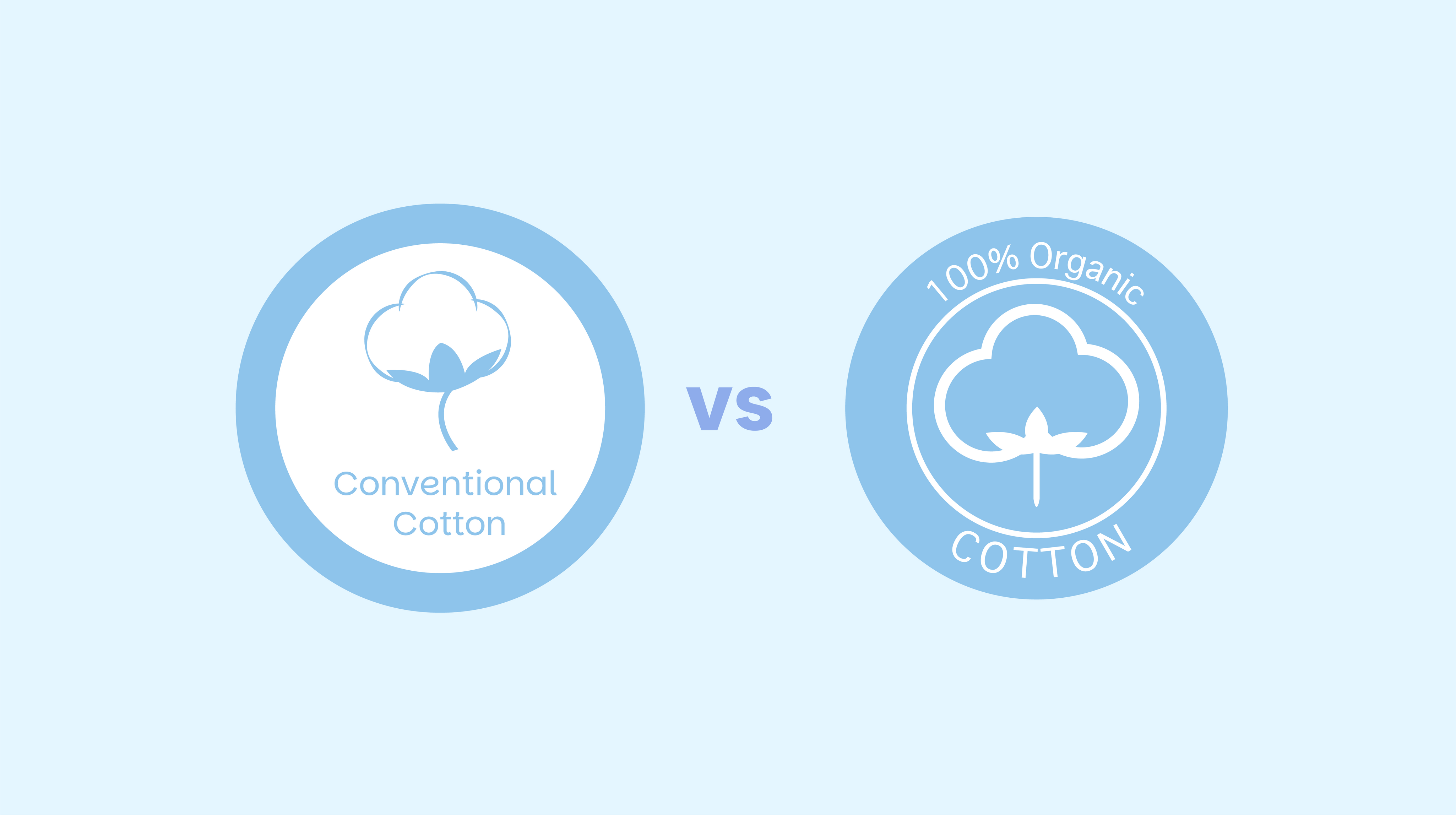What is the difference between Cotton and Organic Cotton

Cotton is a versatile, widely used fabric, but its environmental impact is significant, especially in terms of water use and chemical inputs. Organic cotton, grown without synthetic pesticides or fertilizers, is a more sustainable alternative. It promotes healthier soil, reduces chemical runoff, and can be more water-efficient, especially in areas with better rainfall and soil management.
However, in water-scarce regions, both organic and conventional cotton may require similar irrigation, with irrigation methods being a key factor. Organic cotton can be pricier, but it’s a safer choice for skin and a more eco-friendly option overall.
Cotton vs. Organic Cotton: In detail
1. Growing Practices: Conventional vs. Organic
Conventional cotton: Conventional cotton farming involves synthetic pesticides, herbicides, and fertilizers. These chemicals can damage the environment by contaminating water supplies and harming local wildlife. The use of synthetic chemicals also tends to increase water usage, especially in areas where irrigation is needed.
Organic cotton: Organic cotton farming avoids synthetic chemicals, relying instead on natural alternatives like crop rotation, composting, and natural pest control. Organic practices focus on improving soil health, which contributes to more sustainable farming over the long term.
2. Water usage: Does organic cotton use less water?
A common claim is that organic cotton uses significantly less water than conventional cotton. However, the reality is more nuanced. Organic cotton farming can be more water-efficient in regions with better soil management, as healthy soils help retain moisture. Still, in water-scarce regions, both organic and conventional cotton may require similar irrigation, depending on local climate conditions and the irrigation methods used.
Efficient water use:
Organic cotton farming can improve water efficiency by enhancing soil health, which helps retain moisture and reduces the need for irrigation. However, in water-scarce regions, both organic and conventional cotton may still require significant irrigation, depending on local climate and farming practices. Advanced irrigation methods, such as drip irrigation, are key to optimizing water use in all types of cotton farming.
3. Environmental impact: Chemicals and biodiversity
Conventional cotton: Cotton is one of the largest consumers of pesticides globally. Conventional cotton farming can contribute to soil degradation, water pollution, and harm to biodiversity, as chemical use often harms beneficial insects and disrupts ecosystems.
Organic cotton: By eliminating synthetic chemicals, organic cotton farming supports healthier ecosystems, promotes biodiversity, and reduces pollution. Practices like crop rotation and soil enrichment also foster better soil health, which can have long-term environmental benefits.
4. Health considerations: Chemicals in clothing
Conventional cotton: Cotton clothing from conventional farming may contain residual pesticides and chemicals, which can irritate the skin, especially for individuals with sensitive skin or allergies.
Organic cotton: Organic cotton is grown without synthetic chemicals, making it a safer and healthier option for those with allergies or skin conditions. It’s often recommended for baby clothing, bedding, and products for sensitive skin.
5. Certification: How to know you are buying organic
Look for trusted certifications like Global Organic Textile Standard (GOTS) or OEKO-TEX to ensure the cotton meets environmental and ethical standards. These certifications guarantee that the cotton is grown and processed under stringent guidelines to protect the environment and workers.
6. Cost and availability
Conventional cotton: Conventional cotton is usually cheaper because it involves higher yields and lower production costs. It’s widely available at lower prices.
Organic cotton: Organic cotton is generally more expensive due to the higher cost of production, including certification and lower yields. The price is often 20-30% higher than conventional cotton products, but many consumers feel the environmental and health benefits justify the cost.
7. Durability and comfort: Is Organic cotton better?
Conventional cotton: Conventional cotton is soft, breathable, and durable, but the chemical treatments used in processing can sometimes make it less comfortable over time.
Organic cotton: Organic cotton tends to be softer, particularly because it’s processed without harsh chemicals. It is also more durable and gentle on the skin, making it a preferred choice for sensitive skin or those prone to allergies.
Conclusion: Which is better — Cotton or Organic cotton?
Choosing between conventional and organic cotton depends on your values and priorities. Organic cotton offers a more sustainable and eco-friendly option with fewer chemicals and improved water management. While it can be more expensive, the benefits in terms of environmental impact, health, and long-term sustainability make organic cotton an increasingly popular choice for conscious consumers.
References
- Tags: fabrics



